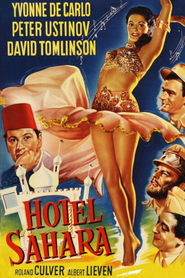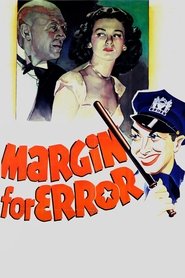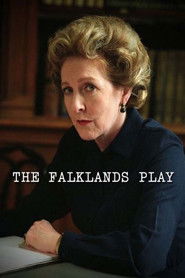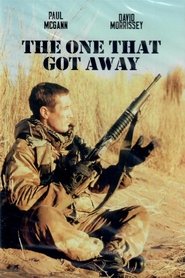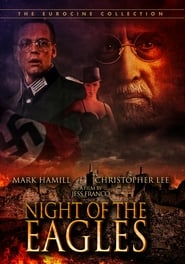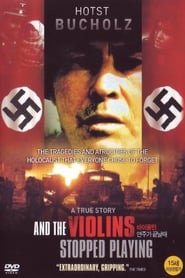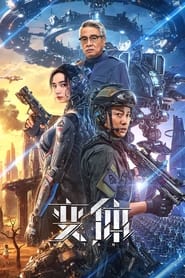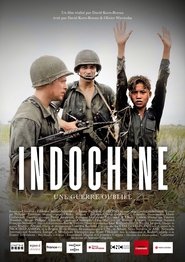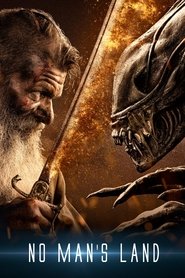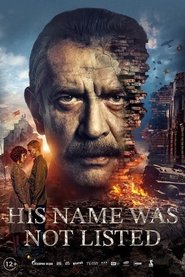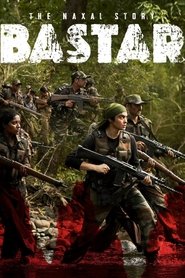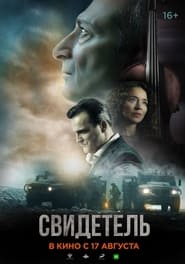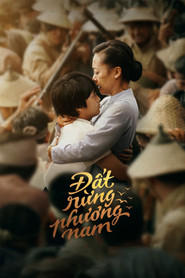Top Rated War Movies on Tub Tv - Page 180
-
Hotel Sahara
1951
-
Margin for Error
1943
Margin for Error
1943
star 5.7When police officer Moe Finkelstein and his colleague Officer Salomon are ordered to serve as bodyguards to German consul Karl Baumer by the mayor of New York City, Finkelstein turns in his badge, convinced he has to quit the service because the man is a Nazi. -
The Falklands Play
2002
The Falklands Play
2002
star 7.3The Falklands Play is a dramatic account of the political events leading up to, and including, the 1982 Falklands War. The play was written by Ian Curteis, an experienced writer who had started his television career in drama, but had increasingly come to specialise in dramatic reconstructions of history. It was originally commissioned by the BBC in 1983, for production and broadcast in 1986, but was subsequently shelved by Controller of BBC One Michael Grade due to its alleged pro-Margaret Thatcher stance and jingoistic tone. This prompted a press furore over media bias and censorship.The play was not staged until 2002, when it was broadcast in separate adaptations on BBC Television and Radio. -
Friends at Arms: Causing Mischief
1962
star 5Ras, who has become a lieutenant in the Ranger Corps, visits his old barracks one day, where he meets all his former fellow recruits. They have just returned from an exercise, where, as usual, they have teased the sergeant major. They are now on their way to leave and suggest that Ras join them, but he declines, explaining that he has to plan an exercise with the Ranger Corps. He suggests that they sign up for the entrance exam, but the guys don't want to. However, they have no doubt that they could easily pass! On their way home from leave, they end up in the wrong train carriage, which drops them off in the middle of a deserted forest, and suddenly they are surrounded by paratroopers, and then they are put to the test... -
The One That Got Away
1996
star 5.8The existence of the anti-Iraq coalition was threatened when Saddam targetted Israel. In order to keep Israel out of the war, and the coalition together the Scuds had to be stopped. SAS patrol Bravo Two Zero, under the command of Sgt. Andy McNab was tasked to destroy these weapons. Three of the SAS troopers were killed and four captured: Only one escaped - Cpl. Chris Ryan. -
Night of the Eagles
1989
Night of the Eagles
1989
star 3In World War II Germany, two young men, one, an ardent Nazi, and the other, a secret anti-Nazi, are in love with the same woman, the daughter of a wealthy banker. The two join the Army, and the young woman becomes a nightclub singer. Eventually she joins the Army too, to entertain the troops, but circumstances soon result in her entire world being changed. -
Mobile Suit Gundam 00 Special Edition II: End of World
2009
star 6.2Like the Japanese Special Editions of other Gundam and Sunrise anime series, this is the second of three volumes, that will condense the first half of the second season of Gundam 00 into feature-length videos. They all feature some new animated sequences and some partially re-recorded dialogue. -
And the Violins Stopped Playing
1988
star 7.5This is the true story about a group of Romani's (gypsy) in occupied Poland during World War II as they confront the atrocities and tragedies of a forgotten holocaust. -
Love+War
2025
Love+War
2025
star 5.8Pulitzer Prize-winning conflict photojournalist Lynsey Addario reflects on a career working in some of the world's most dangerous war zones, including the Russian invasion of Ukraine. -
Red Rain
2025
Red Rain
2025
star 8.2The valorous story of a battalion at the 1972 Second Battle of Quảng Trị, and the high-stakes negotiations leading to the Paris Peace Accords in 1973. -
The Silent Service: The Great Sea Battle of the Arctic Ocean
2025
star 9.6Yamato submerges in the cold, deep northern seas with Mozart's music echoing. The nuclear-powered submarine, named the “Great and Powerful Peace,” overwhelmed the U.S. Seventh Fleet in the Battle of Tokyo Bay and set course for New York. As it approached the Bering Strait, the border between the U.S. and Russia, a submarine loomed behind Yamato... “Sink the nuclear terrorist Yamato!” It is a cutting-edge U.S. submarine, far superior to Yamato, sent by the U.S. President Bennett. At the same time, a general election is held in Japan to dissolve the House of Representatives. Prime Minister Takegami announces his support for Yamato, and the two will share the same fate, whether they remain or sink. Will Shiro Kaieda be able to overcome the greatest challenge of the voyage? Under the aurora borealis, in the Arctic Ocean with floating ice floes, the curtain rises on the battle to be fought. -
Macbeth
2025
Macbeth
2025
star 9.1Fearless and unforgettably creepy. This high-concept production, filmed live at London’s Donmar Warehouse, stars the formidable talents of David Tennant and Cush Jumbo in Shakespeare’s most infamous tragedy. -
Mutant
2024
Mutant
2024
star 6.4In 2150, artificial intelligence mutated and replaced humans' control of the earth, and launched an eradication operation against humans. The surviving humans united together to form a resistance army, and with simple weapons, they fought a desperate battle with the artificial intelligence army. -
No Man's Land
2024
No Man's Land
2024
star 5.6"Battlefield 1 meets Aliens" An outfit of Imperial soldiers fighting brutal trench warfare in a desolate WW1 Battlefield find themselves up against an enemy not from this world. -
His Name Was Not Listed
2025
star 5.2June 21, 1941. Young lieutenant Kolya Pluzhnikov, having received an appointment to a permanent place of service, arrives in Brest. The crowded waiting rooms of the station and the crowd of people weighed down with luggage do not alarm the young man, filled with joyful hopes. Kolya hurries to the location of his unit - the Brest Fortress... The soldier does not have time to enlist in the personnel of the military, and at four in the morning artillery explosions are heard - the war has begun. He was not enlisted in the ranks of the military personnel of the Brest Fortress, but still took part in the first battle in his life, which lasted ten months. -
Intercepted
2025
Intercepted
2025
star 7.5Intercepted is a journey through Ukraine that reveals the banality of evil behind the Russian invasion with the shocking juxtaposition of two realities: the Ukrainians who have been suffering and resisting the war violence, and the Russian military, and civilians, who have been perpetrating it. -
Bastar: The Naxal Story
2024
star 5.2Based on the Naxalite–Maoist insurgency in the Bastar district of Chhattisgarh, an army officer leads a mission to eradicate a group of Maoist separatist insurgents responsible for the massacre of a military troop. -
The Witness
2023
The Witness
2023
star 6.2A Russian war propaganda film about a virtuoso violinist from Belgium witnessing war crimes. -
Song of the South
2023
Song of the South
2023
star 4.8As French colonial rule reaches a violent end in Vietnam, a 12 year old boy makes a treacherous journey in search of his estranged father.
 Netflix
Netflix
 Amazon Prime Video
Amazon Prime Video
 Apple iTunes
Apple iTunes
 Apple TV Plus
Apple TV Plus
 Disney Plus
Disney Plus
 Google Play Movies
Google Play Movies
 Paramount Plus
Paramount Plus
 Hulu
Hulu
 HBO Max
HBO Max
 YouTube
YouTube
 fuboTV
fuboTV
 Peacock
Peacock
 Peacock Premium
Peacock Premium
 Amazon Video
Amazon Video
 The Roku Channel
The Roku Channel
 AMC+
AMC+
 Kocowa
Kocowa
 Hoopla
Hoopla
 The CW
The CW
 Vudu
Vudu
 Starz
Starz
 Showtime
Showtime
 PBS
PBS
 Pantaflix
Pantaflix
 FXNow
FXNow
 Tubi TV
Tubi TV
 Kanopy
Kanopy
 Comedy Central
Comedy Central
 Crunchyroll
Crunchyroll
 Microsoft Store
Microsoft Store
 Redbox
Redbox
 Sun Nxt
Sun Nxt
 ABC
ABC
 DIRECTV
DIRECTV
 Crackle
Crackle
 Fandor
Fandor
 Plex
Plex
